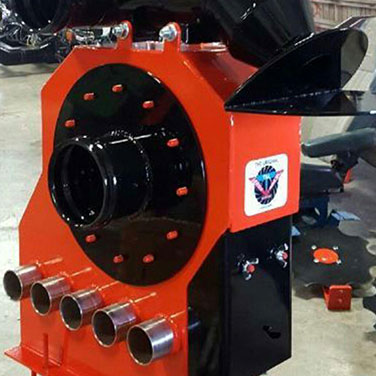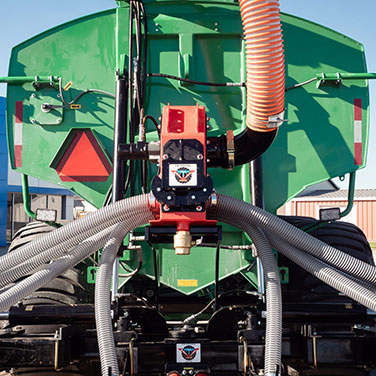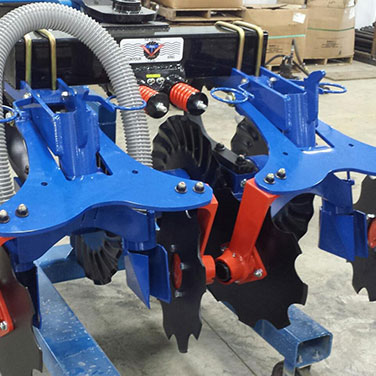Types of Manure for Your Manure Spreaders
You just purchased a fleet of manure spreaders, and you want to start applying high-quality fertilizer throughout your farm or your yard. However, these spreaders need the best kind of manure to ensure that they run correctly. And the best type will vary depending on your needs and your farm’s plants.
As a result, you need to take a look at the various types of manure on the market today. These options come from multiple animals and will ensure that your plants don’t get damaged. You don’t have to stick with one type, either, if you find that you don’t get good results with it.
Cow
Cow manure is one of the most diverse and useful types on the market today. A serving of this manure has about three percent nitrogen, two percent phosphorous, and one percent potassium. The lower levels of nitrogen means that it won’t damage plants, which is particularly crucial if you’re a working farmer and you already have some growths when it comes time to use your manure spreaders. Even better, the plant-based nature of a cow’s diet ensures that their manure contains many nutrients.
That said, though, cow manure does have some drawbacks. For example, cow manure contains very high levels of ammonia that will potentially impact your plant health. Even worse, they have dangerous pathogens that could affect the overall health of your farm in a variety of ways. As a result, you need to age or compost your manure for a few weeks to leach some of that ammonia. This process is necessary even if you don’t plan on putting any of this fertilizer directly on your farm’s plants.
Chicken
Chicken manure is often not thought of as regularly as other types of fertilizer. However, it works well with most manure spreaders and is an excellent choice for a variety of situations. For example, this type of manure has a high level of nitrogen and also contains a concentrated dosage of potassium and phosphorous. As a result, chicken manure is a right choice if past planting cycles have leached your soil of these nutrients, and you need them back in a concentrated amount.
However, this type of fertilizer does have a drawback: it may burn plants because of the high level of nitrogen it contains. As a result, you need to make sure that you compost this manure for several weeks before you use it. Composting chicken manure ensures that the nitrogen isn’t as intense and makes it easier to spread on plants. However, if you don’t plan on covering this directly on any plants, you don’t need to compost it because the nitrogen will soak into the soil more effectively if you let it sit after spreading it with your spreaders.
Sheep
Sheep eat a large number of plants, including various roots and fibrous materials. That makes their manure particularly potent for a variety of situations. It contains a high level of phosphorus and potassium, which makes sheep manure useful for struggling gardens. Their nutrients are particularly beneficial for stronger roots and can help defend your plants against pests in a variety of ways. Even better, sheep manure is among the least potent types in smell.
However, sheep manure is one of the slowest release types on the market today. This means that the nutrients will absorb into the ground more slowly. While this is beneficial over the long term, it can be harder to stimulate growth spurts with this type of manure. And sheep manure also requires a pretty high level of organic matter drains or else the nutrients trapped inside of the fertilizer may not spread as much. Thankfully, though, the compost time is shorter with this type of manure.
Horse
Farmers who don’t have a lot of money to spend on their manure or manure spreaders often use horse manure. This type of fertilizer is typically straightforward to find, which makes it one of the least expensive kinds of fertilizers on the market. Since horses are very avid eaters of plant-based foods, their manure will possess a large amount of organic matter that makes it slightly higher in nutritional value than cow manure. As a result, you can get a potent blast of nutrients that help your plants grow even faster.
As always, though, you need to consider a few things before you use this fertilizer. For example, horse manure contains a surprisingly large amount of weed seeds, which can cause problems with your plants and your soil. Even worse, horse manure is quite potent and can burn your plants if you’re not careful. As a result, you need to let any horse manure sit or compost for a while before you use it. You are probably noticing the trend, here – composting your manure is a must.
Other Types to Consider
Although the manure types above are the most common, you can choose between a few others. For example, goat manure is an excellent garden fertilizer because it has a pellet shape and size. As a result, this manure fits easily in most spreaders and requires very little work to move appropriately. And since it is effortless to find and not as potent as other types, it won’t damage your plants nearly as much as different types.
And pig manure is a good option because it will allow the soil to aerate and produce a vibrant level of nutrients that are hard to top. Unlike goat manure, you’ll need to compose this type to get the best results. Both, while not as damaging as other types, do have drawbacks, such as a higher level of nitrogen that makes them more challenging to use on certain types of plants.
Getting the Help That You Need
As you can see, there are many types of manure on the market today, each of which has different benefits. The kind that you use will vary depending on what you think your farm needs, so make sure to read through this list to get the best results fully.
If you live in the United States and Canada and you need help picking the best manure spreaders for your farm, please contact us at Vertical Till Injector (VTI) right away to learn more. Our experts fully understand the needs of your farm and will do what is necessary to ensure that you get the best spreaders for your needs.



